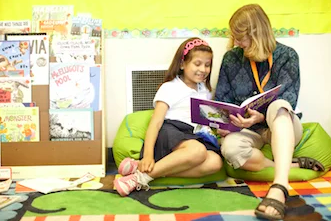Reading is more than a fundamental academic skill—it’s a gateway to independent learning. As students grow in their reading ability, they also gain the confidence and tools needed to explore new topics, solve problems on their own, and think critically. Independent learners are often those who read widely and frequently, developing not just knowledge, but also the curiosity and resilience to pursue learning without constant guidance.
Building Confidence Through Reading
Every successful reading experience contributes to a student’s self-confidence. As children and teens navigate texts on their own, they realize they can understand new concepts without needing someone to explain every detail. This sense of achievement encourages them to tackle more challenging material and take greater ownership of their learning journey.
Strengthening Comprehension and Information Skills
Reading nurtures comprehension skills that are vital for learning across subjects. When students read independently, they practice identifying main ideas, understanding context, and interpreting meaning. These skills translate into the ability to learn from a wide range of sources, including textbooks, research articles, manuals, and digital content—all essential for academic and lifelong success.
Encouraging Curiosity and Exploration
Independent reading often leads to personal discovery. Whether exploring fiction or nonfiction, readers encounter new ideas, cultures, and perspectives. This exposure can spark questions and inspire further investigation, guiding learners down new paths of inquiry that they choose for themselves. Over time, reading becomes a habit that drives curiosity rather than just a classroom requirement.
Developing Self-Motivation and Discipline
Reading regularly requires setting goals and staying committed—skills closely tied to independent learning. Students who read outside of school often do so because they find joy and value in the experience. This intrinsic motivation supports the kind of focused, goal-oriented mindset that helps learners thrive in both structured and self-directed environments.
Fostering Lifelong Learning Habits
One of the greatest benefits of reading is that it cultivates habits that last a lifetime. Readers learn how to learn. They know how to seek out information, ask thoughtful questions, and apply new knowledge to real-world situations. These habits not only support school success but also prepare students for future careers, hobbies, and personal growth.
Conclusion
Reading is a quiet yet powerful force in the development of independent learners. It empowers students to take charge of their education, build essential thinking skills, and discover new passions. By encouraging reading at all levels, we nurture learners who are curious, capable, and prepared to navigate a world full of opportunities.













